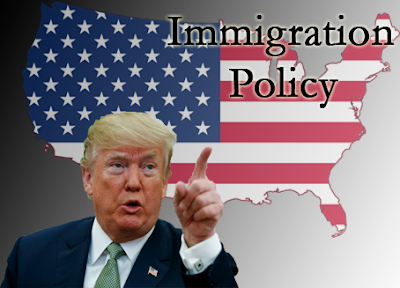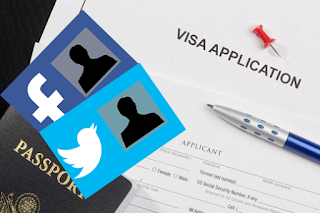Filipinos working
and studying in the United States under the J-1, F, and M nonimmigrant visas
should take note of the proposed changes in the manner of calculating unlawful
presence by USCIS.
The policy
memorandum which was posted on May 11, 2018 s in line with President Donald
Trump’s Executive Order: Enhancing Public Safety in the Interior of the United
States and is set to take effect on August 9, 2018.
The policy amends Section 40.9.2 of the USCIS Adjudicator’s Field
Manual by adding a section concerning F, J, and M nonimmigrants and the manner
of calculating their unlawful presence.
Under
the policy memorandum, individuals in F, J, and M status who failed to maintain
their status before Aug. 9, 2018, will start accruing unlawful presence on that
date based on that failure, unless they had already started accruing unlawful
presence, on the earliest of any of the following:
- The day after DHS denied the request for an immigration benefit, if DHS made a formal finding that the individual violated his or her nonimmigrant status while adjudicating a request for another immigration benefit;
- The day after their I-94 expired; or
- The day after an immigration judge or in certain cases, the Board of Immigration Appeals (BIA), ordered them excluded, deported, or removed (whether or not the decision is appealed).
Individuals in
F, J, or M status who fail to maintain their status on or after Aug. 9, 2018,
will start accruing unlawful presence on the earliest of any of the
following:
- The day after they no longer pursue the course of study or the authorized activity, or the day after they engage in an unauthorized activity;
- The day after completing the course of study or program, including any authorized practical training plus any authorized grace period;
- The day after the I-94 expires; or
- The day after an immigration judge, or in certain cases, the BIA, orders them excluded, deported, or removed (whether or not the decision is appealed).
Individuals who
have accrued more than 180 days of unlawful presence during a single stay, and
then depart, may be subject to three-year or 10-year bars to admission,
depending on how much unlawful presence they accrued before they departed the
United States. Individuals who have accrued a total period of more than one
year of unlawful presence, whether in a single stay or during multiple stays in
the United States, and who then reenter or attempt to reenter the United States
without being admitted or paroled are permanently inadmissible.
Those subject to
the three-year, 10-year, or permanent unlawful presence bars to admission are
generally not eligible to apply for a visa, admission, or adjustment of status
to permanent residence unless they are eligible for a waiver of inadmissibility
or another form of relief.
Nonimmigrants
holding F, J, or M as well as those who previously departed the United States
are strongly advised to consult with a US immigration lawyer to verify their
status or to clarify any questions that they may have.
Article Disclaimer: This article is made available by the lawyer publisher for educational purposes only as well as to give you general information and a general understanding of the law, not to provide specific legal advice. Use of this article does not create an Attorney Client Relationship. This article does not offer or dispense legal advice. By using the article, the reader agrees that the information does not constitute legal or other professional advice and no attorney-client or other relationship is created. The article is not a substitute for obtaining legal advice from a qualified attorney licensed in your jurisdiction. The information on the article may be changed without notice and is not guaranteed to be complete, correct or up-to-date. The opinions expressed at or through the article are the opinions of the individual author. The article should not be used as a substitute for competent legal advice from a licensed professional attorney in your jurisdiction.





